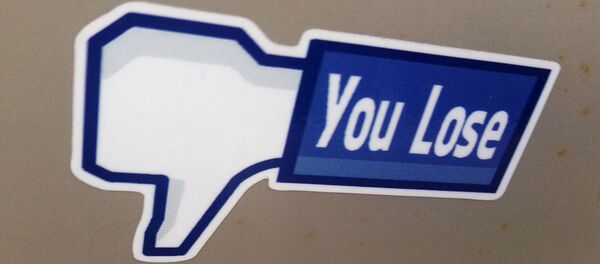Facebook cofounder Chris Hughes has called on US regulators to break the company up in a scathing opinion piece in the New York Times.
In the piece, published Thursday, Hughes warns that Facebook has now amassed more power and influence than "almost anyone else in the private sector or the government," with Facebook CEO Mark Zuckerberg's "ability to monitor, organise and even censor the conversations of two billion people" having "no precedent" in history.
Hughes, who left Facebook in 2008 to work for the Obama campaign, warned that the social media giant has amassed so much power through its various platforms, including WhatsApp, Messenger, Instagram that it now "faces no market-based accountability."
"This means that every time Facebook messes up, we repeat an exhausting pattern: first outrage, then disappointment, and finally, resignation," the entrepreneur, who formerly served as the company's de-facto spokesman, wrote.
According to the entrepreneur, Mark Zuckerberg's personal power in the company is "staggering," with the board of directors working "more like an advisory committee than an overseer" due to Zuckerberg's control of an estimated 60 per cent voting shares.
"Mark alone can decide how to configure Facebook's algorithms to determine what people see in their News Feeds, what privacy settings they can use and even which messages get delivered. He sets the rules for how to distinguish violent and incendiary speech from the merely offensive, and he can choose to shut down a competitor by acquiring, blocking or copying it," Hughes warned.
Saying he still believed that Zuckerberg was a "good, kind person," Hughes argued that the billionaire's incessant "focus on growth led him to sacrifice security and civility for clicks," going on to cite numerous privacy scandals, data leaks, and the alleged manipulation of speech engaged in by the company.
According to Hughes, the company must be broken up, and a new federal agency empowered by Congress must be created to regulate tech companies and protect user privacy. Otherwise, he noted, Facebook could hold on to its monopoly status for decades.



